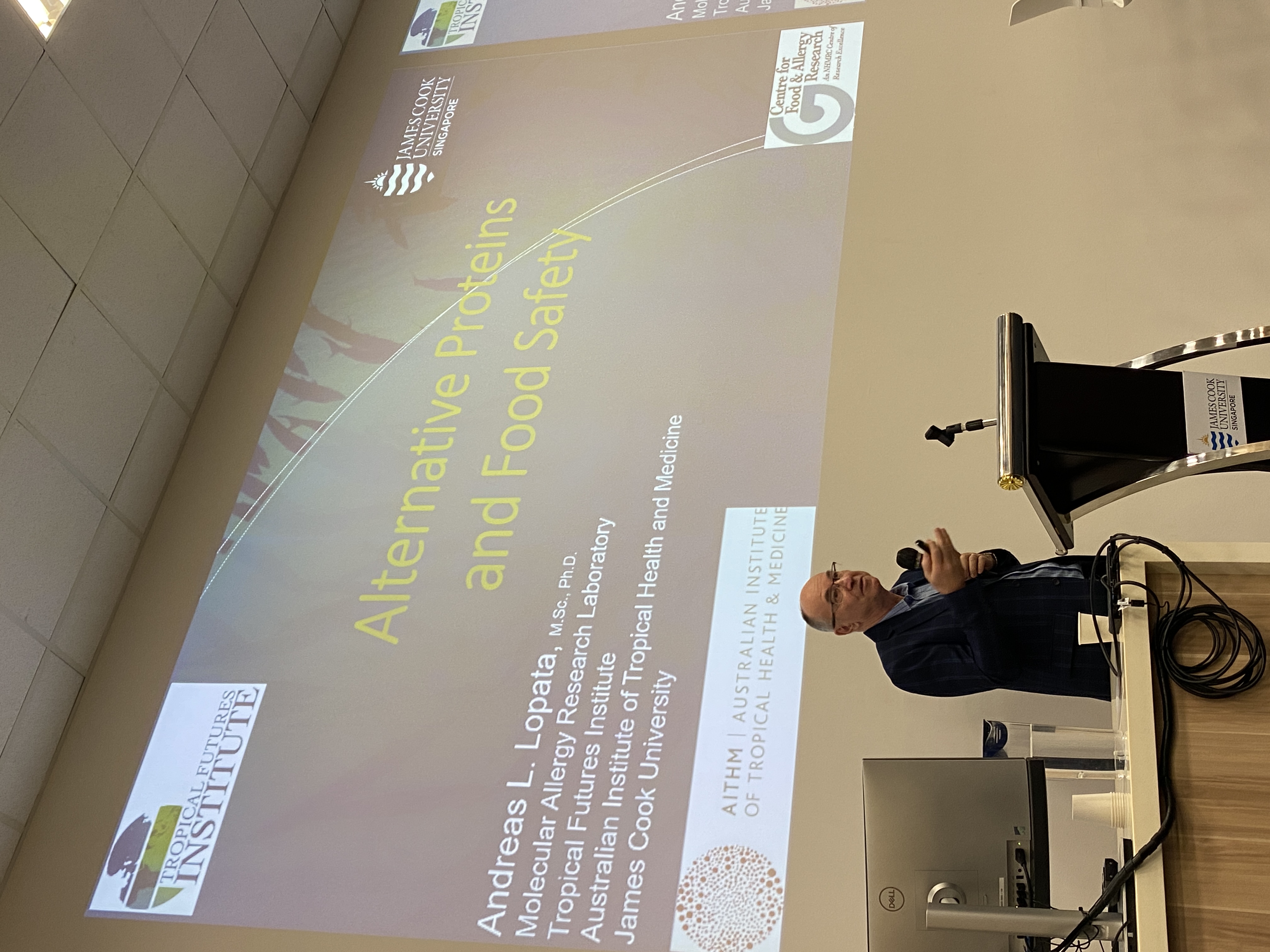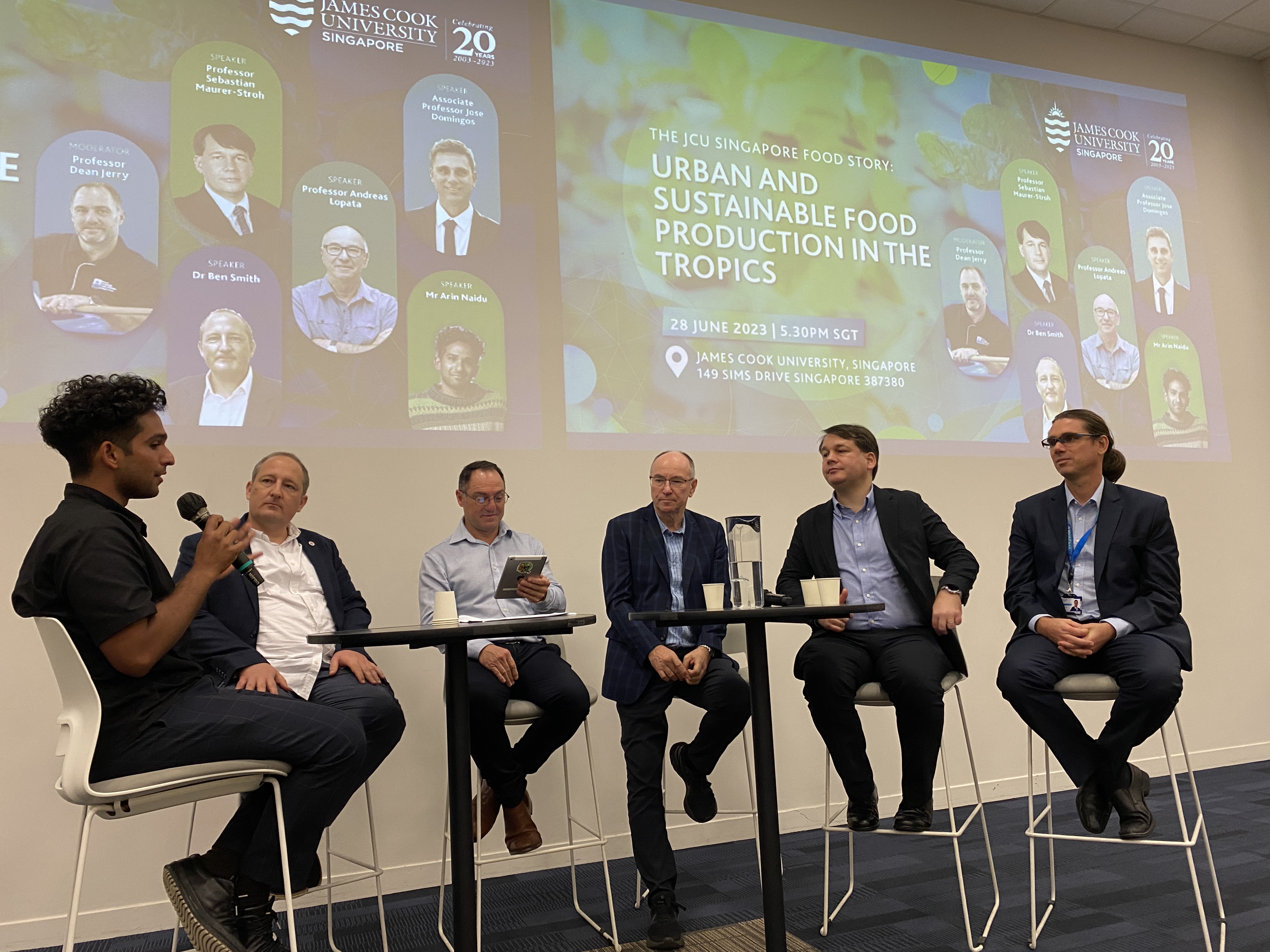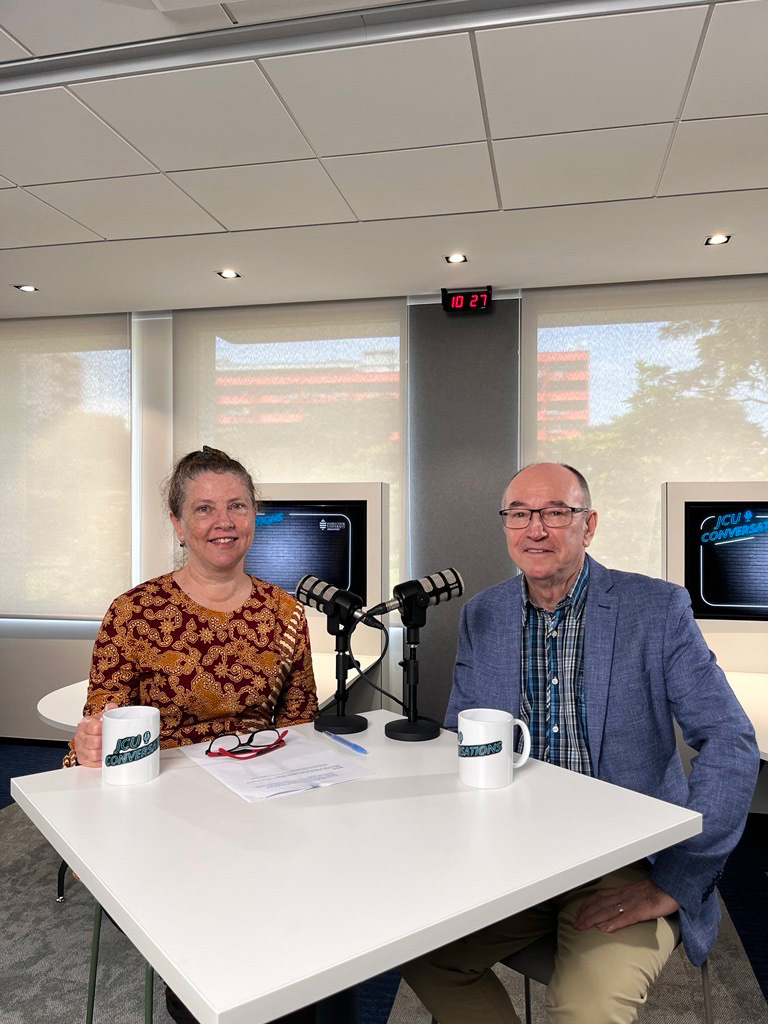Media Releases
Professor Andreas Lopata| Advancing Food Allergy Research: From Diagnostics to Sustainable Solutions in the Tropics

Research Output and Activities
Professor Andreas Lopata's research team in Health Sciences has been instrumental in enhancing food safety and promoting healthier diets in Singapore and across the region. His translational research focuses on diagnosing, managing, and treating allergic and adverse reactions to food, with an emphasis on sustainable food security in the face of innovation. Since joining JCU in 2010, he has established an internationally leading team, which specializes in the molecular identification of allergenic proteins from seafood and their role in human allergic reactions. His research encompasses the generation of recombinant allergens to improve diagnostic tools and quantify allergens in food products, offering critical insights for both diagnostics and therapeutics. Through the use of cutting-edge molecular and population-based approaches, his team investigates how food-based allergens interact with the human immune system, contributing to allergic and chronic inflammatory conditions. The outcomes of this research are disseminated in over 230 publications in the past decade, supported by numerous conference presentations in the Asia-Pacific region.

Lead for the Molecular Allergy Research Laboratory in the Australian Institute of Tropical Health and Medicine, Theme Leader of the 'Molecular Immunology Program' in the Centre for Molecular Therapeutics, Theme Leader of the 'Seafood and Human Health' program in the Centre for Sustainable Tropical Fisheries and Aquaculture, Lead for the Health Sciences and Wellbeing pillar of the Tropical Futures Institute.
“Life has been an exciting adventure for Professor Andreas Lopata, Professor in Biochemistry at the Tropical Futures Institute, James Cook University – it sometimes seems like he’s lived many lives over the past few decades! Professor’s Lopata’s education and career have quite literally taken him to unexpected places – from a Business school in Germany, to studying insects in South Africa, and specialising in food allergy research in Singapore today. Learn more about his colourful life experiences!”
Advancement of Knowledge
A collaborative study with Singapore Institute of Technology and Associate Professor Juan Du resulted in a breakthrough publication on Mung beans (also known as green bean/moog dal/green soy), which are increasingly applied in the alternative protein sector. The research revealed that specific food processing techniques could significantly reduce allergenic proteins, a key finding for the development of safer innovative food products. The team also discovered that different Mung bean varieties contain varying levels of allergenic proteins, providing valuable insights for selecting plant varieties in future protein sources with a high safety profile. Additionally, research on edible insect proteins has highlighted the similarities between crickets, black soldier flies and shrimps, contributing to improved allergen quantification in food safety assessments. Professor Lopata's publications on adverse reactions to edible insects underscores the need for improved testing methods, as several proteins that pose risks for shellfish-allergic individuals are not consistently detected by current tools. His research on edible insects in Singapore was highlighted through The Straits Times.
“Those allergic to seafood are likely to have the same reactions from eating cell-based shrimp or shellfish, and scientific research can help to alleviate this.
Prof Andreas Lopata from James Cook University in Singapore is currently analysing and comparing the tissues of different fish species to find out how much allergens they carry.
The aim is to find species with low amounts of allergens and use them to make safer cell-based fish fillets or sashimi.”
Implementation

Prof Lopata’s lab offers scientific collaborations and commercial services to characterise allergenic proteins for allergen characterisation, detection and quantification in different settings, including the indoor and working environment, novel food products such as cell-based meat and therapeutic applications. One of the lab’s early-career researchers successfully secured a grant to further explore the safety of alternative proteins derived from edible insects, demonstrating the practical application of the team’s research. The study's success is a result of strong collaboration between institutions, including James Cook University and CSIRO in Australia, and A*STAR Bioinformatics Institute, Singapore Institute of Technology in Singapore, and the University of Indonesia, but also industries including Umami-Bioworks in Singapore and the National Measurement Institute of Australia. These collaborative efforts underscore the lab’s capacity to translate its findings into practical solutions, offering allergen characterization and quantification services for novel food products, such as cell-based meat, in academic, clinical and commercial contexts.
“In this episode Alex speaks to Andreas Lopata who is professor at James Cook University in Australia and Singapore. Andreas recently received an award from the Good Food Institute to research allergens in cultured seafood - monitoring it and measuring it. The WHO and the FAO asked for this research to be carried out due to the higher risk of allergens in cultured seafood and therefore the potentially higher risk to human health.”
Legislation and Policy
Professor Lopata’s work in the field of food safety, allergy diagnostics and treatment, particularly within the Asia-Pacific region, has established him as a global authority on seafood allergies. His research not only advances scientific understanding but also informs national and international guidelines on food safety, cultivated-meat and workplace health & safety, including the FRESH Future Ready Food Safety Hub (FRESH) in Singapore and NMI in Australia. By serving on expert committees, Professor Lopata contributes to shaping policies and standards that aim to protect public health, ensuring that his research has a direct influence on the regulatory landscape governing food safety and allergen management.

Economic Benefit
Food allergies are an escalating global health issue, affecting around 10% of children and increasingly impacting adults and the elderly. Professor Lopata’s research addresses this growing problem by improving our understanding of food allergies in the tropics, a region where population growth and urbanization are expected to increase the prevalence of allergic diseases. His work not only enhances public health outcomes but also has economic implications by supporting the development of safer food products, alternative food innovations from edible insects as well as cultivated-meat and reducing the healthcare burden associated with allergic diseases.
"Prof Andreas Lopata and his Research Fellow, Dr Thimo Ruethers, were consulted for Channel News Asia’s Talking point on ‘Bed Bugs & Dust Mites: Are These Tiny Insects Living In Your Bed?’."
Community Benefit
The rapid changes brought on by population growth, urbanization, and globalization in tropical regions have far-reaching impacts on public health. Professor Lopata’s research takes a comprehensive approach to promoting the physical and mental well-being of communities, focusing on the intersection of food safety and public health in rapidly evolving societies. By addressing adverse reactions to food and food allergies, a condition affecting a growing number of people, particularly vulnerable children and the elderly, his work contributes to the creation of healthier, more resilient communities in the tropics and beyond.

Publications
Chanasit, S, Johnston, E, Thanasarnthungcharoen, C, Kamath, SD, Bohle, B, Lopata, AL, & Jacquet, A (2024). Hypoallergenic chimeric virus-like particles for the development of shrimp tropomyosin allergen Pen m 1-specific blocking antibodies. Allergy: European Journal of Allergy and Clinical Immunology, 79(4), 1052-1055. https://doi.org/10.1111/all.15892
Chin TGJ, Ruethers T, Chan BA, Lopata AL, Du J (2024) Techno-functional properties and allergenicity of mung bean (Vigna radiata) protein isolates from Imara and KPS2 varieties. Food Chem, 1, 457:140069. https://doi.org/10.1016/j.foodchem.2024.140069
Dorney, RD., Johnston, EB., Karnaneedi, S, Ruethers, T, Kamath, SD., Gopi, K, Mazumder, D, Sammut, J, Jerry, D, Williamson, NA, Nie, S, & Lopata, AL (2024). Variation in shrimp allergens: Place of origin effects on food safety assessment. International Journal of Molecular Sciences, 25, 4531. https://doi.org/10.3390/ijms25084531
Karnaneedi, S, Johnston, EB, Bose, U, Juhász, A, Broadbent, JA, Ruethers, T, Jerry, EM, Kamath, SD, Limviphuvadh, V, Stockwell, S, Byrne, K, Clarke, D, Colgrave, ML, Maurer-Stroh, S, & Lopata, AL (2024). The allergen profile of two edible insect species—Acheta domesticus and Hermetia illucens. Molecular Nutrition & Food Research, 68(16), 2300811. https://doi.org/10.1002/mnfr.202300811
Nugraha R, Kurniawan F, Abdullah A, Lopata AL, & Ruethers T. (2024). Antihypertensive and antidiabetic drug candidates from Milkfish (Chanos chanos). Identification and characterization through an integrated bioinformatic approach. Foods, 19, 13(16):2594. https://doi.org/10.3390/foods13162594